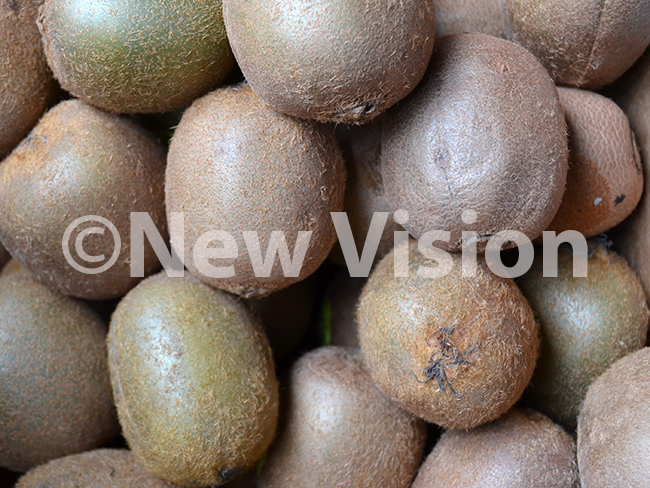Why fibre should be a must on your daily menu
“Increased fibre intake can reduce blood pressure and inflammation, which is also protective to the heart," says Sharon Naluwende, a nutritionist.
HEALTH
KAMPALA - "Eat more fibre-rich foods." You have probably heard this before, but did you know that fibre was such a lifesaver?
Martin Nkote's experience is a good example. Nkote wanted to get rid of his weight and protruding tummy, which were always causing him fatigue in the afternoons.
He thus started an exercise routine to reduce the weight. However, three months into it, there was nothing to show for the effort.
On advice from a nutritionist to have more fibre-rich foods dominate his diet, Nkote replaced white bread with brown bread. He also made cabbage, peas and beans a must-have on his daily menu.
 Carrots are rich in fibre. (Photo by Umar Nsubuga)
Carrots are rich in fibre. (Photo by Umar Nsubuga)
"My digestion drastically improved. Three months later, I realized the belly had reduced. I now feel healthier, weigh less and I am more alert and stronger. I also lost about nine kilogrammes without working out too hard."
Medical research shows that fibre can lower blood sugar, cut cholesterol levels and may even prevent colon cancer and help avoid haemorrhoids.
Sharon Naluwende, a nutritionist at Mulago Hospital, says eating whole foods is the best way to increase fibre intake.
Common sources of fibre include Ovacado, pear, apples, white beans and peas.
"Dietary fibre, found mainly in fruits, vegetables, whole grains and legumes, is best known for its ability to prevent or relieve constipation.
But fibre can provide other health benefits, including lowering your risk of diabetes and heart disease," explains Naluwende.
 Strawberries are recommended for a healthy diet. (Photo by Umar Nsubuga)
Strawberries are recommended for a healthy diet. (Photo by Umar Nsubuga)
Fibre, also known as roughage, includes all parts of the plant foods that your body cannot digest or absorb.
nlike other food components such as fats, proteins or carbohydrates, which the body breaks down and absorbs, fibre is not digested.
Therefore, it just passes through the system until it is excreted out of the body.
It might seem as if fibre does not do much, but it has several important roles in maintaining health.
Benefits of a high-fibre diet
"Fibre normalises bowel movements by increasing the weight and size of your stool and softens it," says Naluwende, adding that a bulky stool cleans colon walls and is easier to pass, decreasing chances of constipation.
If you have loose, watery stools, fibre may also help to solidify the stool because it absorbs water and adds bulk to stool.
She says for some people, fibre may provide relief from irritable bowel syndrome.
Fibre also lowers cholesterol levels. "Increased fibre intake can reduce blood pressure and inflammation, which is also protective to the heart. It can slow the absorption of sugar, which, for people with diabetes, can help improve blood sugar levels," reveals Naluwende.
"A diet that includes insoluble fibre has been associated with a reduced risk of developing Type 2 diabetes."
 Foods rich in Fibre are highly recommended by nutritionists for a healthy diet. (Photo by Umar Nsubuga)
Foods rich in Fibre are highly recommended by nutritionists for a healthy diet. (Photo by Umar Nsubuga)
Like Kironde, there are many reasons why including more fibre in your diet can help boost weight loss and make efforts of losing unhealthy weight.
Haspha Nassolo, a senior nurse at Joint Clinic Research Centre, explains that unlike other carbohydrates, most dietary fibre does not provide any calories.
This means fibre-rich foods are often lower in energy than foods containing no fibre or only small amounts, making them ideal for people who are trying to lose weight.
High fibre foods also take longer to chew.
"As well as helping you to feel more satisfied when you eat, this automatically slows down the speed at which you eat.
"This gives your brain time to register feelings of fullness, making it less likely to over eat." Nassolo explains.
"Better still, fibre stays in the stomach longer and so helps to keep you feeling satisfied, meaning that you are less likely to want to eat very often."
He adds that, although usually neglected, deficiency of roughage can result into serious consequences.
"Lack of fibre in food results into constipation, the root cause to other ailments and health hazards such as stomach ulcers, headache, intestinal cancer, indigestion and resultant loss of appetite, skin diseases and eczema.
Also related to this story
The 10 best foods to eat in the morning
Food that will make a man tick
A healthy way of taking your meals
Wonders of zinc food to a man